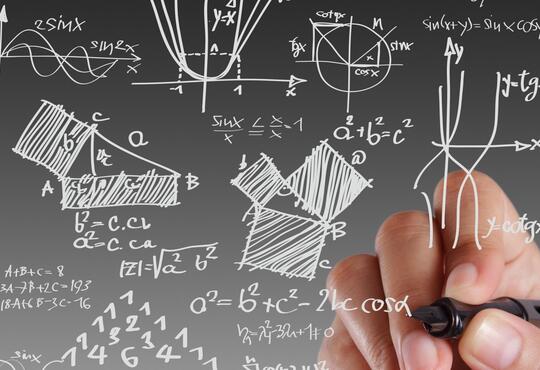Canada Day 2023 was extra special for the Department. Most of us celebrated our good fortune to live in Canada with back-yard barbecues and perhaps a few fireworks. However, faculty members Mike Hudson and Will Percival had the ultimate fireworks experience: the raw power of a SpaceX Falcon 9 blasting-off from the historic Space Launch Complex 40 at Cape Canaveral in Florida. How did they get so lucky? Hard work, determination, and they just happen to be two of the world’s top physical cosmologists selected to serve on the science team of the European Space Agency’s Euclid observatory. Mike (Professor of Physics & Astronomy) and Will (The Mike & Ophelia Lazaridis Distinguished Research Chair in Astrophysics and Director of the Waterloo Centre for Astrophysics) were among a small number of science team leaders invited to attend the launch. Euclid happened to be nestled in the fairing atop the mighty Falcon 9.
Mike and Will returned from Cape Canaveral triumphant and replete with launch stories and press interviews. If all goes as planned, they and their teams of students and postdocs can look forward to years of discovery with Euclid. Euclid is a visual and near infrared telescope designed to scan the sky and map the distribution of galaxies in the universe. Its optics are optimised to use gravitational lensing, one of the strangest phenomena emerging from General Relativity, to map the mass distribution of the cosmos. Their goal is to precisely measure the amounts of dark matter, dark energy, and normal matter (the stuff of stars, planets, humans) and how they change as the cosmos has expanded over time. Their measurements are intended to unravel the natures of dark matter and energy, and to reveal why the expansion of the universe is accelerating. At the end of its six-year journey, we will better understand the origin and fate of the universe.
We have known of the existence of dark matter and dark energy since the early 1970s and mid 1990s, respectively, through the anomalously large motions of stars and galaxies. But we still do not know what dark matter and dark energy are. To some this might seem an embarrassment to physics. I see opportunity. Scientific revolutions, like the discoveries of General Relativity and Quantum mechanics, happen rarely. They are precipitated by measurements at variance with fundamental physical theories or phenomena unaccountable to physical laws. We may be living one of those moments.
Students often ask me, “why physics?” So many reasons come to mind, particularly as I think of you, our readers, and your many remarkable accomplishments enabled by your physics educations. Solving the dark energy and dark matter problems also come to mind. Two of the most profound problems in the whole of science, both are ripe for solution. These problems point to a scientific revolution that may reveal a universe much richer than Einstein or Bohr could have imagined a century ago. Will, Mike, and their teams are leading the way. I can’t think of a better reason to study physics at Waterloo than having a chance to be part of this great endeavour.






